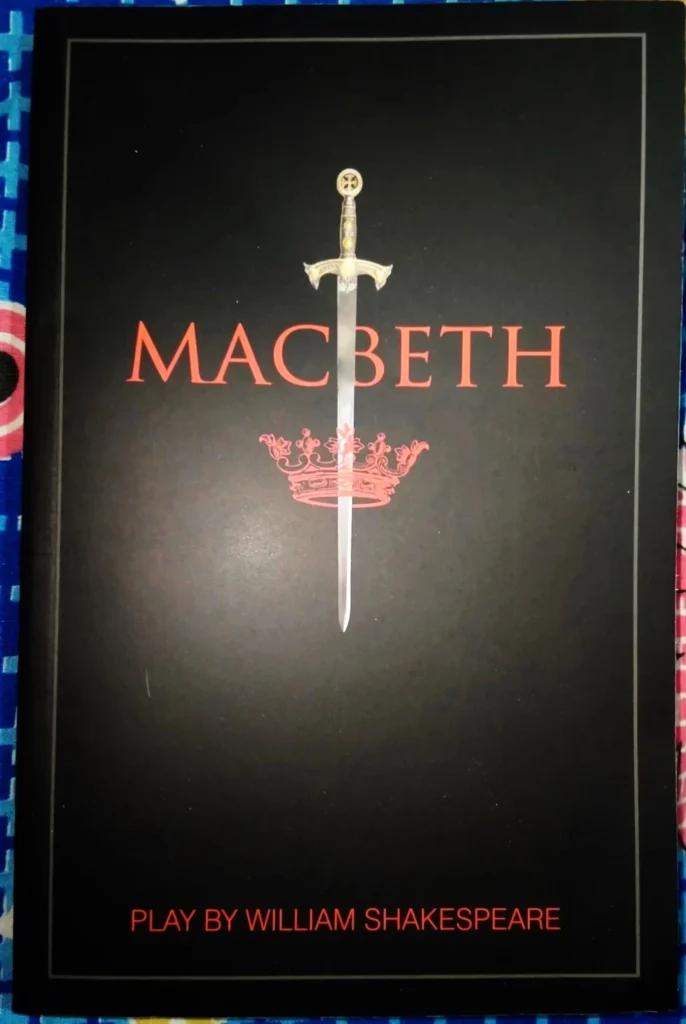
The Banquet scene in “Macbeth” is one of the most moving scenes; and as far as the tragedy of Macbeth is concerned, it is tremendous in its dramatic impact and intensity. This scene is simultaneously the high point of Macbeth’s reign and the beginning of his downfall. It records Macbeth’s guilty conscience taking the most horrible form in the shape of Banquo’s ghost. Macbeth’s bizarre behavior puzzles and disturbs his subjects, confirming their impression that he is mentally troubled. It also shows Macbeth’s gradual overcoming of the qualms of conscience.
The scene (scene IV, Act III) opens at the royal hall of Scotland with the banquet ready celebrating Macbeth’s coronation. The couple is now at the height of double-dealing. Macbeth’s words and phrases to the thanes, such as “You know your own degrees” and “Both sides are even: here I’ll sit i’ the midst” suggest a renewal of order and symmetry in Scotland, yet the audience knows that this is not the case. Both sides are not even, because Banquo is missing. Degree, or rank order, has been effectively perverted by Macbeth by his killing of the king and his usurpation of the throne. As in Act I, Scene 6, Lady Macbeth’s words of introduction disguise her true feelings. Once again, the Macbeths act with suspicious confidence.
Fittingly enough, the announcement of the banquet is disturbed and delayed by the arrival of the first murderer at the door. Macbeth’s own supposed invincibility is shown when, at the news of Banquo’s murder, he says that he feels “as broad and general as the casing air,” but on hearing the unwelcome news that Fleance escaped his treachery, Macbeth’s language abruptly changes: “But now am cabin’d, cribbed, confin’d, bound in / To saucy doubts and fears” (25-26). The alliteration of the hard c sounds reveals Macbeth’s sense of constraint, in contrast to the freedom which he claims to have enjoyed previously.
The dramatic irony becomes most effective when the audience watch the bloody ghost of Banquo enter the stage and sit at Macbeth’s appointed chair and Macbeth, unaware of its presence, wishes: “Were the graced person of our Banquo present.” As he becomes aware of its presence, the whole scheme goes awry for Macbeth. Though the queen tries hard to stop the involuntary confessions, the situation goes beyond her control.
Given the role that Banquo’s character plays in Macbeth, it is appropriate that he and not Duncan should haunt Macbeth. Like Macbeth, Banquo also heard the witches’ prophecies and entertained ambitions. But, unlike Macbeth, Banquo took no criminal action. His actions stand as a rebuke to Macbeth’s behavior and represent a path not taken, one in which ambition need not beget bloodshed.
As Lady Macbeth pushes him towards the corner of the stage, Macbeth bursts in mixed reactions of fear, anger, irritation, uneasiness, submission, philosophical ruminations and apprehension of retribution. He now understands that in the moral universe, tumbled upside down by him, death to a person does not put an end to all, that dead men”…rise again, With twenty mortal wounds on their crowns, And push us from our stools…”
In contrast to the urgent horror of Macbeth’s addresses to the gruesome apparition, there are moments of comparative calm. Each time the ghost vanishes, Macbeth’s relief is recorded in softer, more lyrical expression. Indeed, the entire structure of this scene shows a man swinging from one state of mind to another. Thrice Macbeth sees the ghost, and thrice he appears to recover his senses. This alternating structure adds strongly to the impression of Macbeth’s loss of control.
With the departure of the guests, Macbeth appears to regain some of his earlier self-confidence. Macbeth now understands the truth that “…blood will have blood”, that is, murder begets murder; but he falsely draws the conclusion to his own purpose, that is, further murders will become necessary to protect his throne. He announces his decision to visit the Weird Sisters once more, this time of his own accord. Macbeth, however, talks of the dilemma of ambition, which was typical of the Renaissance and is symptomatic of the modern age: “…I am in blood Stepp’d in so far that, should I wade no more, Returning were as tedious as go ov’r:” And herein lies the tragic appeal of the drama to a modern audience. It is in this scene that Macbeth emerges as a confirmed murdered with “strange things…in head”. In other words, the ghost of Banquo leads Macbeth unwittingly to his tragic downfall.
THANK YOU FOR VISITING US!
I believe that this answer will surely help you to score full or excellent marks. Keep visiting our website for valuable contents, absolutely free, No login no Sign Up, stay hassle free and Enjoy!

[…] The Banquet scene in “Macbeth” is one of the most moving scenes; and as far as the tragedy of Macbeth is concerned, it is tremendous in its dramatic impact and intensity. This scene is simultaneously the high point of Macbeth’s reign and the beginning of his downfall. It records Macbeth’s guilty conscience taking the most horrible form in the shape of Banquo’s ghost. Macbeth’s bizarre behavior puzzles and disturbs his subjects, confirming their impression that he is mentally troubled. It also shows Macbeth’s gradual overcoming of the qualms of conscience. … (Read More) […]